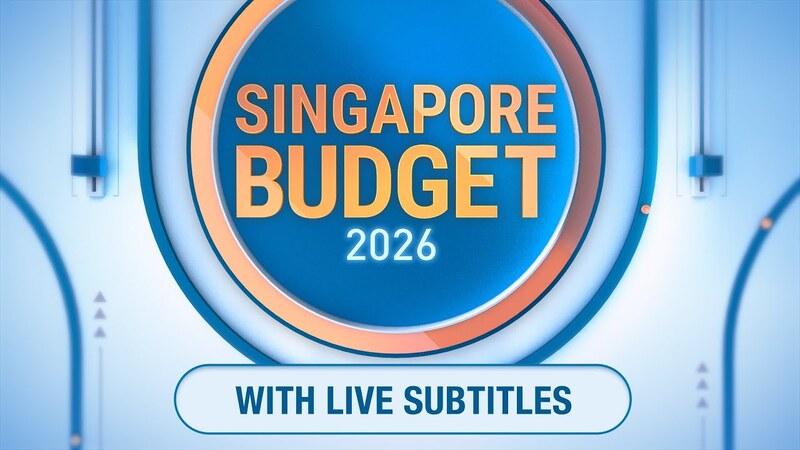Budget 2022: What Businesses should look out for

Image courtesy of Singapore's Ministry of Finance
With the Budget 2022 announced by Finance Minister Lawrence Wong last Friday, here are the key highlights for businesses to take note of as reported by Vulcan Post and Dollars and Sense:
1) Increase of GST to 8% in 2023 and 9% in 2024
The finance minister said he has considered the overall situation for the staggered timing of the GST hike, taking into account pressing revenue needs as well as inflationary pressures. $40 million will be set aside under Productivity Solutions to help businesses adjust by applying for subsidized accounting and point of sale solutions.
2) Minimum Qualifying Salaries for EP and SP holders; Lower Dependency ratio for Work Permit Holders
Starting from Sep 2022, the minimum qualifying salary for new Employment Pass (EP) applicants will be raised to $5000 while those in the financial services sector would have the minimum raised to $5500 due to their higher salary norms. Meanwhile, new SP applicants would have to hold a minimum qualifying salary of $3000. Similarly, for the financial services sector, the S Pass applicant would need a minimum salary of $3500. To manage the flow of S Pass holders, Tier 1 levy will also be increased progressively to $650 by 2025.
Work Permit policies in the construction and process industries will be adjusted. The dependency ratio ceiling (maximum permitted ratio of foreign workers to the total workforce that a company is allowed to hire) will be reduced to 1:5.
3) Small Business Recovery Grant, Covid-19 Recovery Grant, and Jobs Growth Incentive
$500 million has been set aside for a Jobs and Business Support Package where a small business recovery grant will be provided for SMEs that were hardest hit by Covid-19 restrictions last year such as F&B, retail, tourism and hospitality sectors. Eligible firms will receive a payout of $1000 per local employee up to a maximum of $10k per firm. Local sole proprietors and partnerships in eligible industries and hawkers,market and coffeeshop stall holders that do not hire locals and are licensed by SFA will also receive a $1000 payout. Those who are still facing income loss due to Covid-19 can apply for the Covid19 recovery grant, extended till year end. The Jobs Growth Incentive has also been extended till September to cover those who face higher challenges in finding jobs such as mature workers, people with disabilities and ex-offenders.
4) Loan Programmes to be extended
The Temporary Bridging Loan Programme will be extended till 30 Sep with revised parameters to alleviate cash flow issues from rise in materials cost and electricity. The enhanced Trade Loan scheme will be extended till 30 Sep and will have a 70% risk share for SMEs to venture to emerging markets such as Brazil or Bangladesh. The enhanced Project Loans scheme was also extended to 31 Mar to support local construction projects. The Merger & Acquisition loan will be expanded to include local M & A activities from 1 Apr 2022 to 31 Mar 2026.
5) Businesses to get support for higher carbon tax
Carbon tax will be increased to $25 per tonne in 2024 and 2025 and $45 per tonne in 2026 and 2027, eventually reaching $50-$80 per tonne by 2030. The current tax of $5 per tonne of emissions remains constant till 2023. No additional carbon tax will be applied on the use of petrol, diesel and compressed natural gas. A transition framework would be implemented to help firms in emissions-intensive and trade-exposed industries to manage the immediate term impact to business competitiveness due to the rise in carbon taxes. Businesses will be permitted to use high quality international carbon credits to offset up to 5 percent of their taxable emissions, in lieu of paying carbon tax, from 2024. More support for companies to invest in energy-efficient equipment and decarbonisation solutions are underway.
6) Extensions for Progressive Work Model & Workfare Income Supplement; Offset for Higher CPF contribution rates for Senior Workers
The Progressive Wage Model will be extended to retail,food services, waste management,cleaners,security officers, landscape workers,administrators and drivers across all sectors. The government will introduce a progressive wage credit scheme (PWCS) to co-fund the wage increases of lower-wage workers from 2022 to 2026. Co-funding will be set at 50% for the first 2 years for workers earning up to $2500, tapering down to 30% in the next 2 years and 15 percent in 2026. Support will also be provided for workers earning between $2500–$3000 at a lower co-funding rate.
The qualifying income cap for the Workfare Income Supplement will be increased to $2500 per month from 2023, be extended to younger workers aged 30 to 34 and people with disabilities will also get a maximum payout of $4200 annually.The enhanced Workfare scheme is set to benefit more than half a million workers.
CPF contribution rates for mature workers (55 to 70) will increase by another 1.5 to 2% in 2023 and the government will provide employers with a 1 year CPF transition Offset equivalent to 50% of the increase in employer CPF contributions. These workers will see a total increase of 3-4 percent in CPF contribution rates over the next 2 years.
7) Skillsfuture Enterprise Credit Claims to be extended
Employers are supported in staff training through the above scheme. Today, only employers that had at least 3 local staff and contributed minimally $750 of Skills Development Levy over a qualifying period are eligible for this credit. However, this requirement will be waived to support more small and micro businesses to utilise the SkillsFuture Enterprise Credit till 30 June 2024.
8)$200 million to build digital capabilities;$600 million to increase productivity
$200 million will be set aside to build digital capabilities in businesses and workers, which include the Grow Digital Scheme and the TechSkills Accelerator. $600 million will also be introduced to expand solutions under the Productivity Solutions Grant and support companies in rolling out digital and automation solutions.
What do you think of the above measures rolled out in Budget 2022? How helpful would these measures be for supporting businesses?





